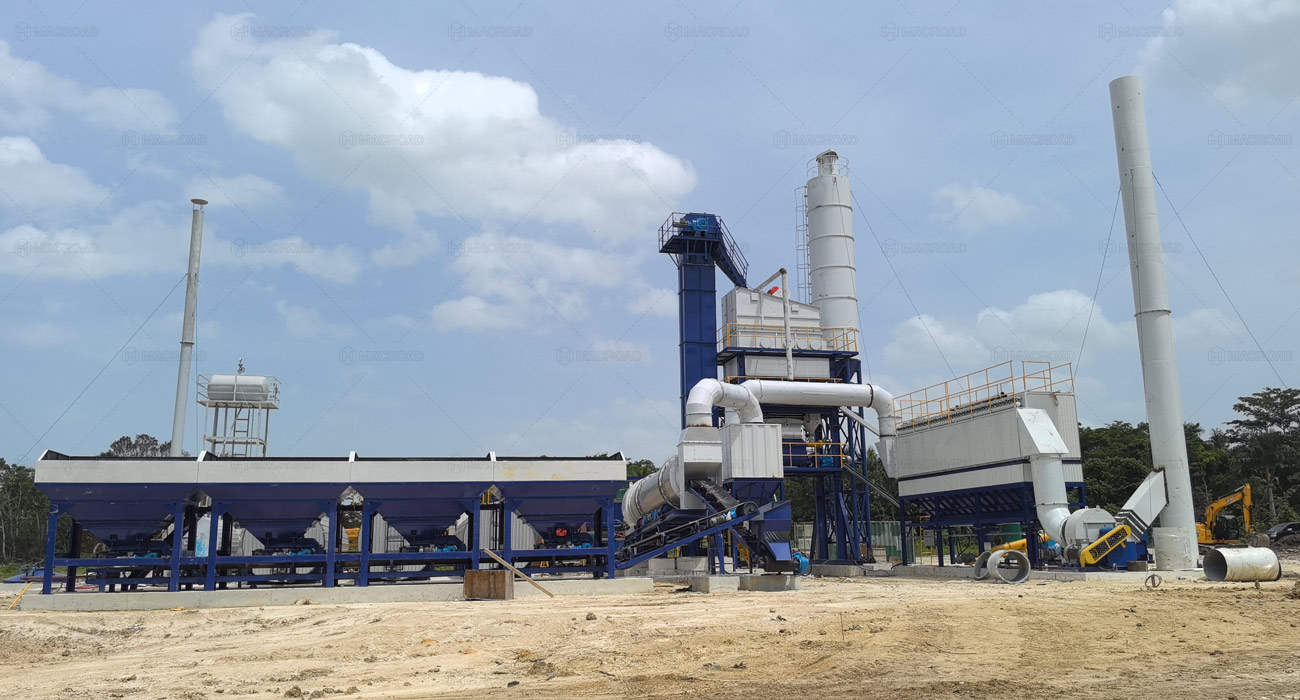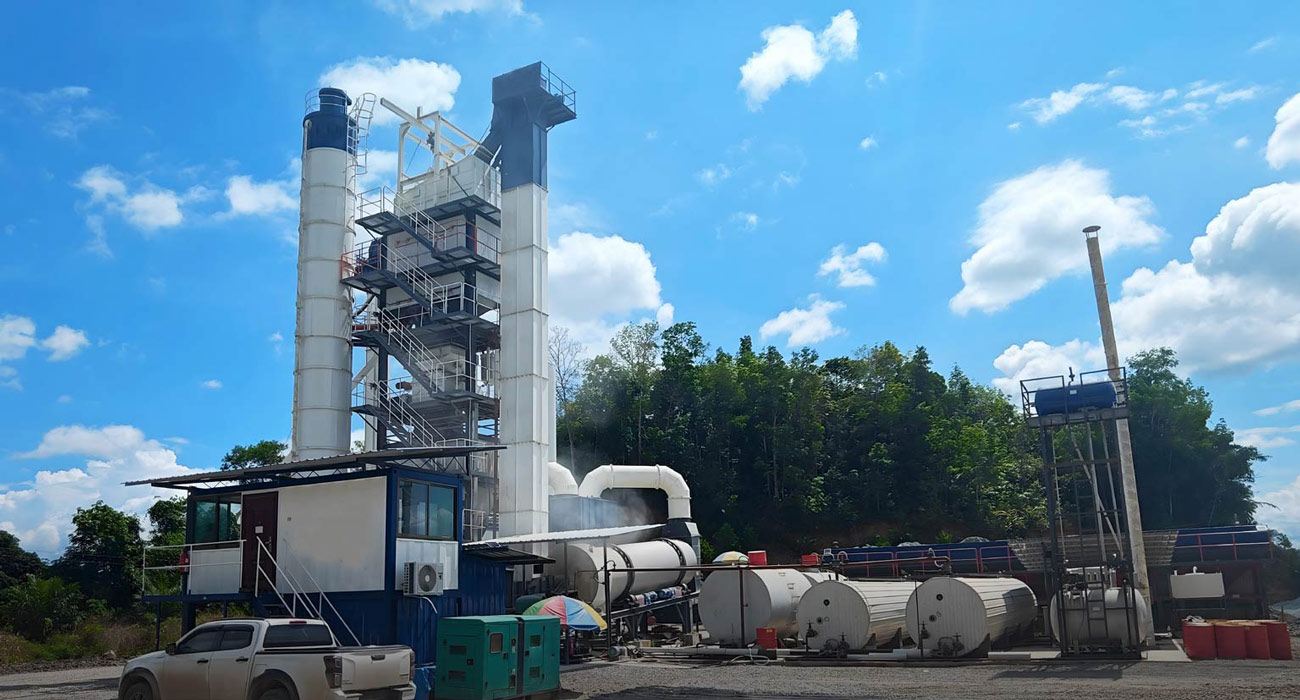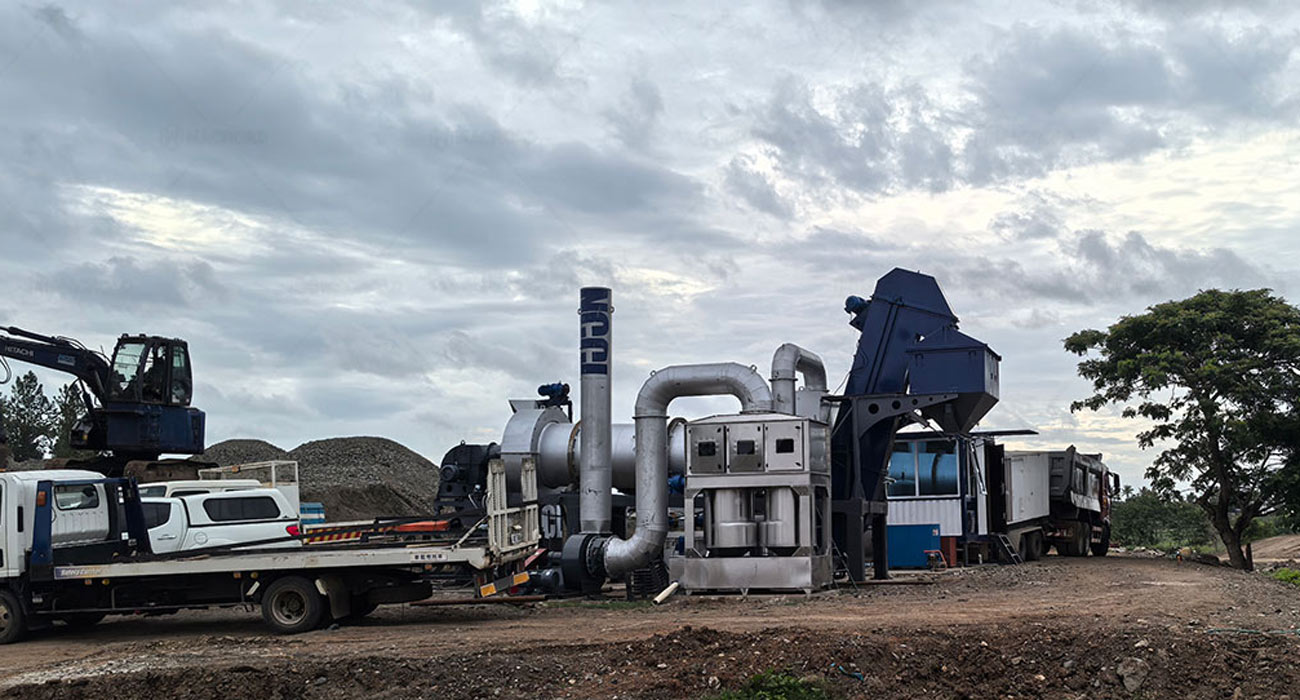When paving roads in narrow urban streets or areas with frequent traffic flow, the collaboration of asphalt batch mixing plants, mini asphalt mixing plants, and road paving equipment is essential to ensure pavement quality while minimizing traffic disruption. Each component plays a distinct role in the overall process, contributing to an efficient and effective paving operation.

The Role of Asphalt Batch Mixing Plants
Asphalt batch mixing plants are integral to providing a stable supply of high-quality asphalt. These plants are designed to produce asphalt in batches, allowing for precise control over the mixture and ensuring that the final product meets the required specifications. In urban environments, where space is often limited and the demand for materials is high, having a reliable source of asphalt is crucial.
The stability in supply from asphalt batch mixing plant allows contractors to schedule their operations effectively, minimizing delays that could lead to increased traffic congestion. By producing asphalt in advance, crews can ensure that they have sufficient material ready for the paving process, reducing the time spent on-site and allowing for smoother traffic flow during construction hours.

Flexibility of Mini Asphalt Mixing Plants
In contrast, mini asphalt mixing plants offer flexibility that is particularly beneficial for urban road paving projects. These smaller units are designed for easy transport and quick setup, making them ideal for narrow streets where space is at a premium. Mini asphalt mixing plants can supplement the supply from larger asphalt batch mixing plants, providing additional material as needed without the delays associated with transporting larger quantities.
This flexibility allows contractors to respond rapidly to changing project conditions or unexpected demands. For instance, if a particular section of road requires additional asphalt due to unforeseen damage or increased traffic patterns, mini asphalt mixing plants can quickly be deployed to provide the necessary material, ensuring that the project stays on schedule and traffic disruptions are minimized.

Precision with Road Paving Equipment
The use of road paving equipment in conjunction with asphalt batch mixing plants and mini asphalt mixing plants is critical for achieving precise construction results. Modern road paving equipment is equipped with advanced technology that allows for accurate placement of asphalt, ensuring a smooth and durable surface. This precision is especially important in urban areas where the quality of the pavement can significantly impact traffic flow and safety.
Effective collaboration between the asphalt mixing plants and road paving equipment enhances the overall quality of the paving operation. By ensuring that the right type of asphalt is used in conjunction with advanced paving techniques, contractors can create surfaces that withstand heavy traffic and adverse weather conditions, thereby extending the life of the pavement.

Minimizing Traffic Disruption
One of the primary concerns when paving roads in urban environments is the potential for traffic disruption. By leveraging the strengths of asphalt batch mixing plants, mini asphalt mixing plants, and road paving equipment, contractors can implement strategies that significantly reduce the impact on traffic flow. For example, scheduling work during off-peak hours or utilizing efficient traffic management techniques can help maintain smoother traffic patterns.
Moreover, companies like Macroad emphasize the importance of this collaboration, providing innovative solutions that enhance the efficiency of the paving process. By integrating advanced technologies and equipment, they help ensure that urban paving projects are completed on time and with minimal disruption to the surrounding community.
Conclusion
In conclusion, the collaboration of asphalt batch mixing plants, mini asphalt mixing plants, and road paving equipment is essential for paving roads in narrow urban streets or areas with frequent traffic flow. Each component plays a unique role in ensuring a stable supply of high-quality asphalt, providing flexibility for changing project needs, and facilitating precise construction techniques. By working together effectively, these elements contribute to maintaining pavement quality and minimizing traffic disruption, ultimately leading to successful urban road paving projects that meet the demands of both contractors and the community.